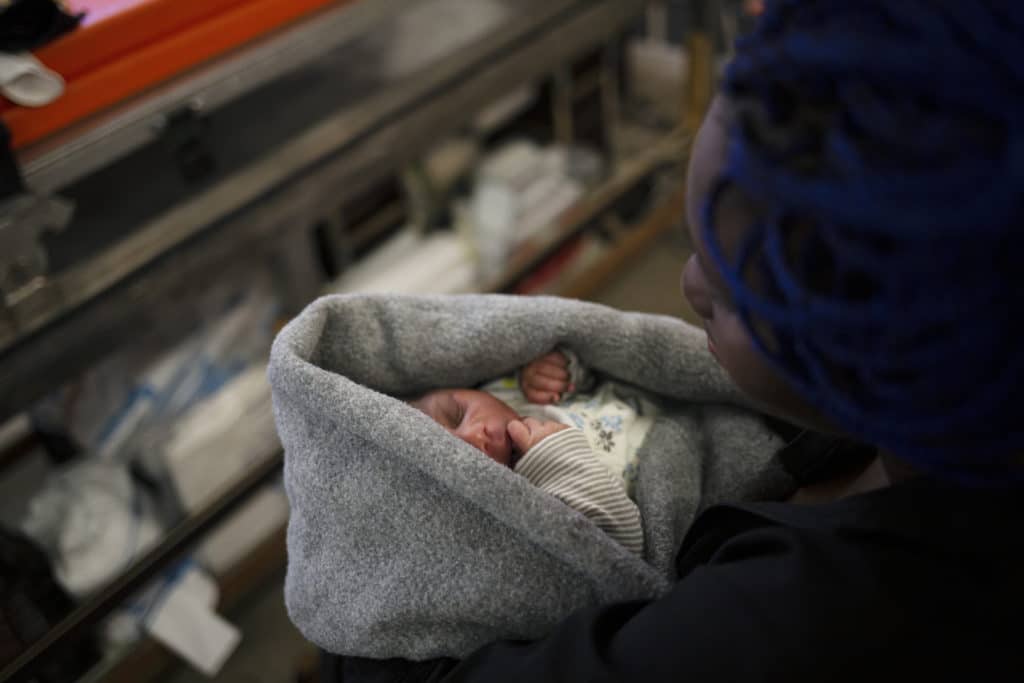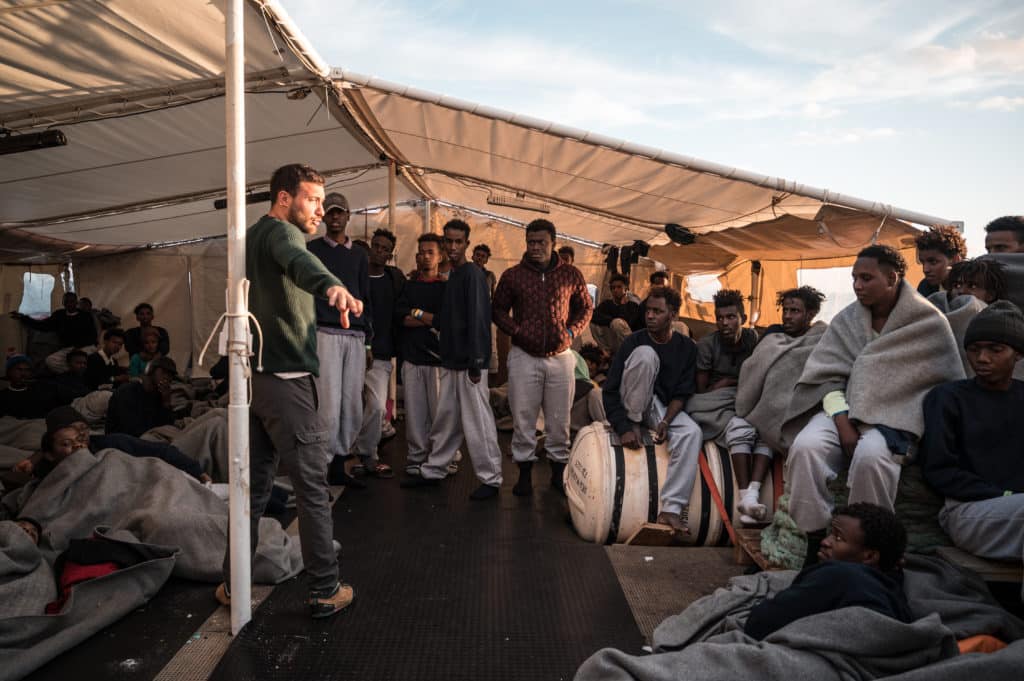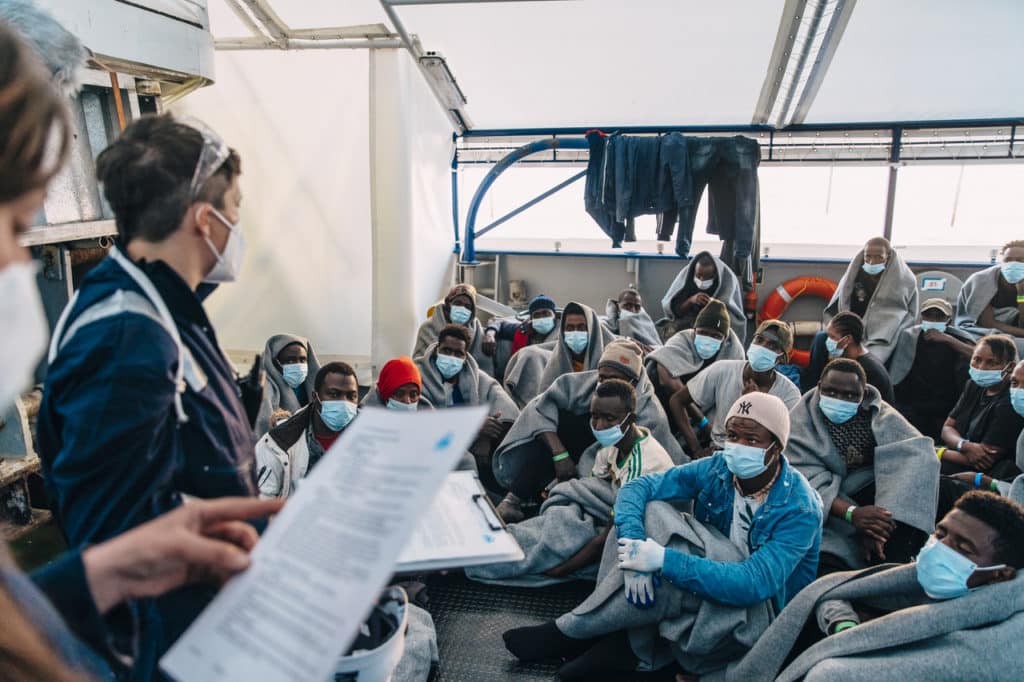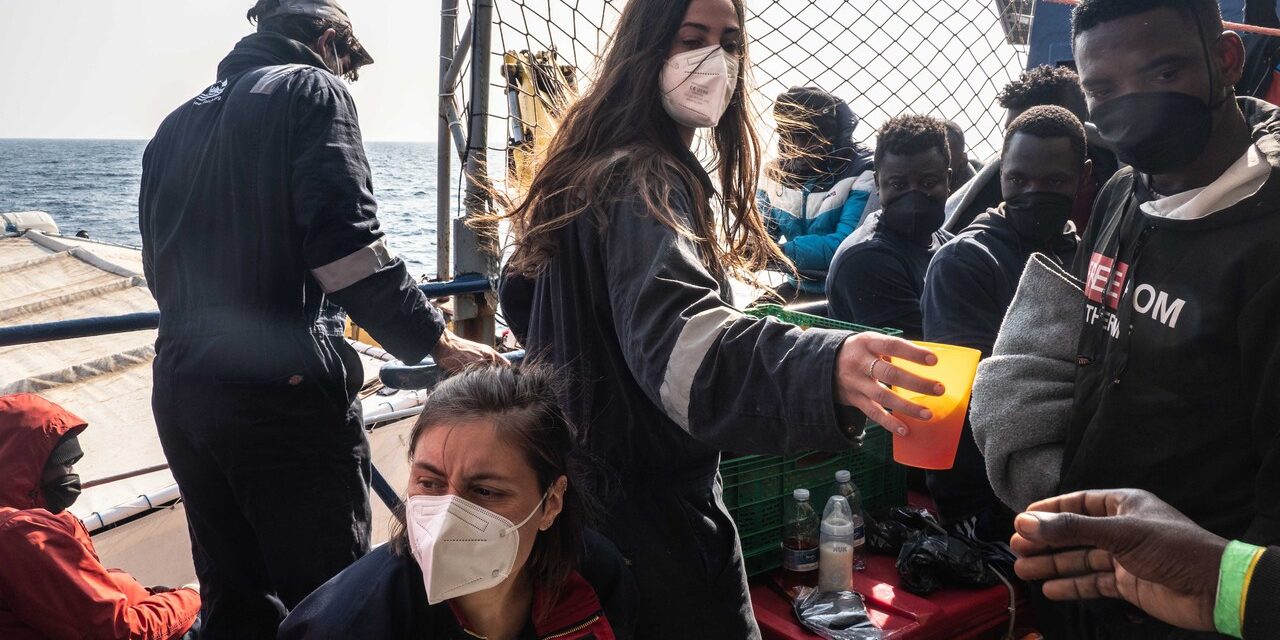The guest coordinators on board our ships are responsible for the well-being and safety of our guests during the missions – an enormous undertaking with up to 500 rescued people. Without planning down to the last detail, this task cannot be mastered, because during missions all the cogs have to mesh together.
Imagine a group of about 350 people with different needs, some with injuries and trauma, others still too young to draw attention to their needs. They have been through terrible ordeals, possibly enduring days on an unseaworthy rubber dinghy. Some of them are hypothermic, seasick, starving or have burns from the dangerous mixture of fuel and water. Not to mention their previous experiences on the run and in Libya. After being rescued by our crews, the ordeal continues: For days, if not weeks, they have to wait on board our ships for a safe harbour – with no privacy and less than 1m² of deck space per person. Unforeseen situations are inevitable.
It is precisely this tension between adequately meeting basic needs and dealing with unexpected situations that our guest coordinators work in. The most important basis for mastering this balancing act? All processes that can be automated and planned must be carefully thought through beforehand and implemented in the least time consuming way. Otherwise, valuable time is wasted that is lacking elsewhere. Even processes that seem trivial, such as the preparation of baby milk, have enormous potential to swallow up valuable working time.
To prevent this, it is crucial for our guest coordinators to understand what groups of people are on board and what their needs are. A large proportion of those rescued are women, underage persons and women with children. Babies under six months of age are a particularly vulnerable group. This is why in the past, our crews had to find a way to cope with the enormous organisational task of providing the best possible care for our smallest guests on board without it swallowing up valuable time ressources.

The fundament for the care of babies is first of all clear communication: the topic is clearly raised with the crew on board so that no baby is overlooked and everyone is informed about the procedure. After all the rescued persons have been brought on board, the medics check with the mothers whether they can and want to breastfeed their baby, and then fill out the so-called baby list: Age, the amount of baby milk and the right frequency for the bottle are determined. In addition, a place on deck is agreed upon where the bottles will be handed over to the parents at a certain time.
The guest coordinators then select two crew members who will be responsible for giving out the baby milk during the mission. They then receive a comprehensive introduction to the topic. One crew member is responsible in the morning, the other in the afternoon for making sure that the babies get their bottles at the right interval.
By always having the same people do the task, it is ensured that over time the milk is prepared as quickly as possible. This is because the crew members become baby milk experts bit by bit by building up competence and gaining experience. If the milk was always prepared by a different crew member, this would require significantly more resources, because each crew member would have to familiarise themselves anew. The clear handover location to the parents also saves further valuable time that used to be spent trying to locate the parents with their babies.
The time resources saved are thus available for other challenges: How to cook 80 to 90 kg of rice for the guests on board? How do our guests cope with about 0.5 to 1m² of space to sleep? How do we manage to cover basic medical needs? And how do we deal with all the unpredictable situations that arise due to the lack of space and privacy?
But why is caring for babies on board our ships such a challenge in the first place? Because preparing baby bottles properly requires quite a bit of work, time and knowledge. Sterilising, preparing and cooling can take up to 45 minutes – time during which the rest of the crew has to deal with having one less crew member on deck.
In order to solve this organisational problem and provide the best possible care for children under six months of age, our guest coordinators, in cooperation with our medical staff, have developed guidelines for action. This is to take the pressure off the ship’s crew to come up with their own solution for preparing baby milk in the situation – there is simply no time for that during a rescue mission.


A mission is often a state of emergency. No planning in the world can prepare you for everything that can happen. But thanks to good, meticulous preparation of partial aspects such as baby food, at least expectable tasks can be accomplished in the most resource-saving way possible. This creates resources for everything that cannot be foreseen and that our guest coordinators have to react to spontaneously in the situation.











